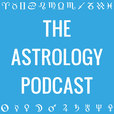
Summary: <br> <br> In episode 141 of the podcast Dr. Safron Rossi joins the show to talk about the life and work of the Swiss psychiatrist Carl Gustav Jung, and in particular his views on astrology.<br> <br> Safron recently co-authored a book with Keiron Le Grice titled <a href="http://amzn.to/2FmhsrF" target="_blank" rel="nofollow noopener">Jung on Astrology</a>, which explores Jung's thoughts on astrology by providing excepts from his collected works where he talked about the subject. You can read the full introduction <a href="http://www.astro.com/astrology/in_jungonastrology_e.htm" target="_blank" rel="noopener">on the Astrodienst website</a>.<br> <br> <a href="http://amzn.to/2FmhsrF" target="_blank" rel="nofollow noopener"></a>We begin the discussion by talking about some notable concepts that Jung contributed to the field of psychology, before moving on to a discussion about the important role that he played in influencing modern conceptualizations of astrology in the 20th and 21st century.<br> <br> Safron is a professor at Pacifica Graduate Institute in the Jungian and Archetypal Studies MA/PhD program, and she also writes and lectures on astrology. You can find more information about her work on her website at <a href="https://www.thearchetypaleye.com" target="_blank" rel="noopener">TheArchetypalEye.com</a>.<br> <br> Below you will find an outline of some of the major points we touched on in the discussion, followed by links to download or stream the recording of this episode of the podcast.<br> <br> Outline<br> <br> * Introducing Safron and talking about her background.<br> * How did the book Jung on Astrology come about?<br> * Talking about the scope and purpose of the book.<br> * Discussing the life and work of Jung.<br> * Who was Jung?<br> <br> * Carl Gustav Jung was a Swiss psychiatrist (1875-1961).<br> * Early in his career he was a colleague of Freud’s.<br> * Interest in esoteric ideas and subjects.<br> <br> <br> * What did he do, and why is his work significant?<br> <br> * Mythological or archetypal dimension of the psyche called the collective unconscious.<br> * Archetypes<br> * Complexes<br> * Individuation<br> * Interpretation of symbolism<br> * Melding of wisdom of past with modern psychological understanding<br> <br> <br> * What did he think about astrology?<br> <br> * It is a symbolic language of archetypes, the formative principles and patterns in the depths of the unconscious<br> * Ancient psychology.<br> <br> * “Astrology was the first form of psychology..."<br> <br> <br> <br> <br> * What was his influence on the astrological tradition?<br> <br> * Psychological astrology draws on some of the main Jungian principles in three main ways:<br> <br> * Psychological interpretation of astrological factors (rather than causal/concrete)<br> <br> * Psychological types and zodiacal elements<br> <br> <br> * Emphasis on psychological development (rather than prediction)<br> <br> * Birth chart as symbolic of an individual's character on a deep, potential level.<br> * Transits as a process of development, maturing and opening to one’s potential - divine clock<br> <br> <br> * Theoretical assumptions behind astrology<br> <br> * Archetypal basis of reality<br> * Synchronicity - acausal connections. Acausal correspondence.<br> <br> <br> * Reflection, clock on the wall<br> <br> <br> * Importance of symbolic understanding<br> * Mythological and cosmological meaning<br> <br> <br> <br> Listen to This Episode<br> You can either play this episode of the podcast directly from the website or download it as an MP3 to your computer by using the buttons below:
